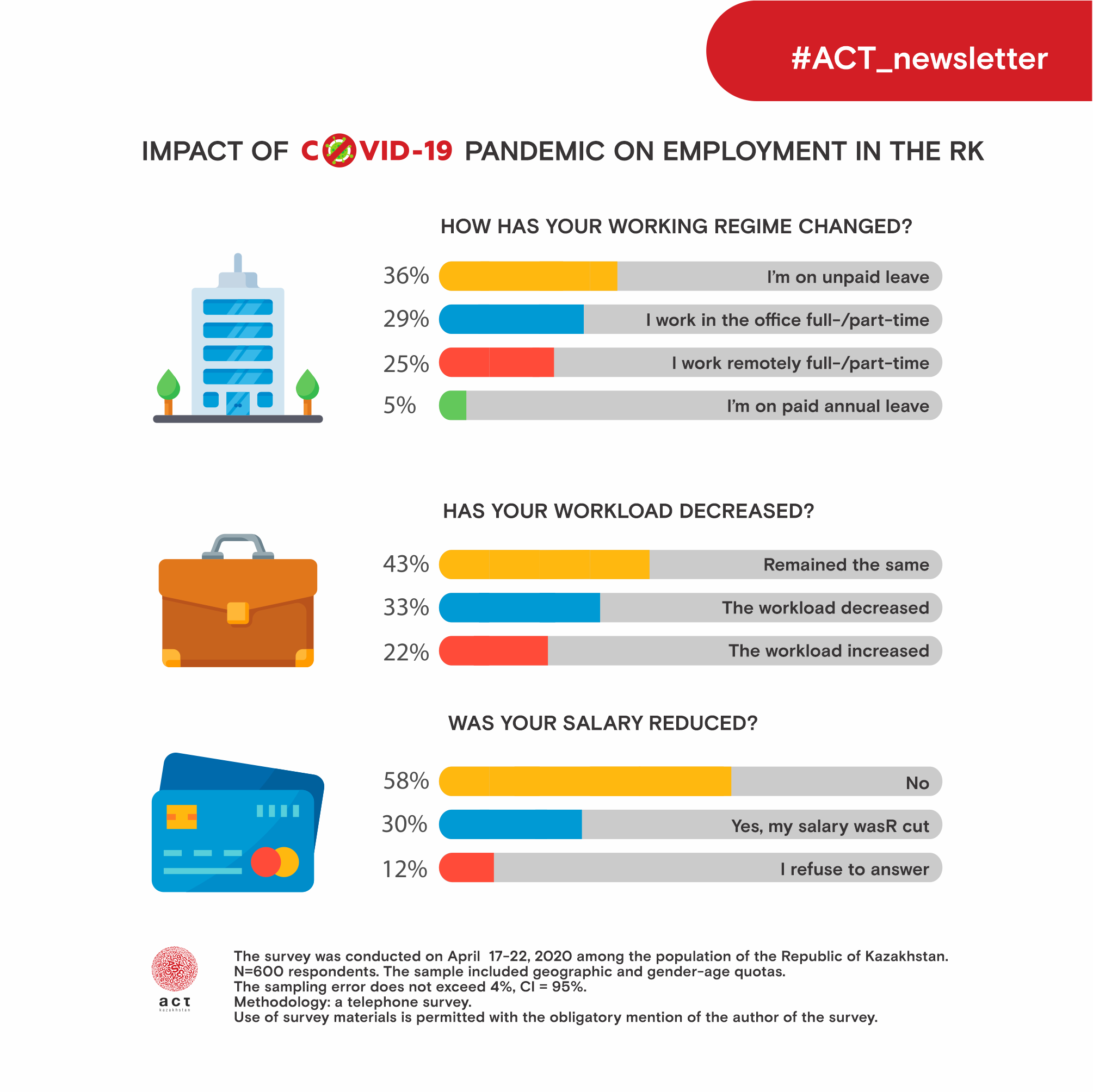COVID-19 was the reason for introducing the unprecedented quarantine measures in modern Kazakhstan to contain the spread of the disease. In general, Kazakhstan has not introduced such large-scale quarantines over the past 50 years. The first economic forecasts related to the consequences of the introduced quarantine measures have appeared since the very beginning of the quarantine measures in Kazakhstan and other countries of the world.
During the state of emergency, ACT Kazakhstan has conducted a survey among the population of the Republic of Kazakhstan on the impact of the introduced regime on the work activities. It is worth noting that before the emergency, 79% of the respondents had a permanent job, 7% had part-time employment, and 14% of the respondents were unemployed. At the time of the survey, 36% of respondents who had a full-time or part-time job were on unpaid leave, 29% continued to work in the office (21% – full-time, 8% – part-time), 25% worked remotely, and 5% were on paid annual leave.
Regarding the workload of those Kazakhstanis who continued working online and offline during the emergency, the workload remained the same for 43% of the respondents, increased for 22% of the respondents(in particular, it affected medical workers – 18%)), and decreased for 33% of the respondents (mainly, for those involved in trade – 20% and services – 18 %). Most of the respondents have not experienced material damage from the measures introduced, and their wages remain the same (58%). Almost a third of the respondents (30%) who had a job before the emergency noted a reduction in the wage (in 11% of cases, it went down to 1 minimum wage). 12% refused to share information on changes in wages.
The reduction of wages of affected Kazakhstanis amounted to:
- 10-20% — in 4% of cases
- 21-30% — in 9% of cases
- 31-40% — in 3% of cases
- 41-50% — in 22% of cases
- Above 51% — in 47% of cases
- Refused to answer – 15%
What are the expectations of Kazakhstanis in terms of employment? 53% of respondents expect no changes, 10% expect to be sent on unpaid leave, 5% expect to be sent on paid leave, 4% expect a reduction in wages, 2% expect to lose the job. Everyone perceives self-isolation differently. Most of the employed respondents (79%) are ready to work even in a pandemic, while 16% would not go to work even if the quarantine removed.






